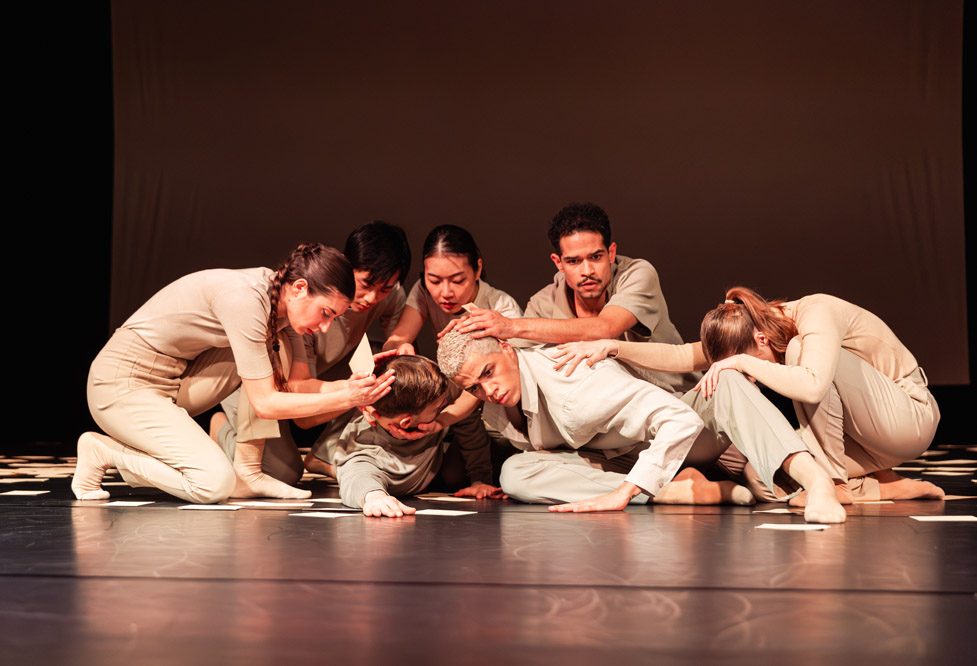
Choreographer Oded Ronen began to work with the ballet theater of Ulm, Germany at the height of the war, while volunteering daily at the Hostages and Missing Families Forum. The contract with the German theater was signed a year earlier, but Ronen was clear that his experiences in the Forum – a group established by families of kidnapees after Hamas’ October 7th attack to demand the hostages’ release – would be at the heart of the new work.
"There was no chance," he said in an interview with Davar, "that I would create something abstract."
As an artist, he felt obliged to offer a ray of light in great darkness.
"Human beings are different from each other," he said, "but we all have a base of vulnerability and pain. Part of my responsibility as an artist is to make amends… I will not bring great darkness without showing a way out of it, even if it is a thin ray of light. If you succeed in non-verbal art, like dance, or photography, or even music, in reaching the raw feeling of the viewer, you also succeed in reaching his soul, and there you can offer healing."
The work with the international troupe, a troupe of ten dancers, began on Zoom while Ronen was in Israel. It was agreed that the work would deal with the issue of identity. The theater trusted Ronen that the work would not be political or anti-Palestinian. The resulting show, "The Missing," took to the stage far from Israel, already performed in Germany ten times in front of packed halls.
Ronen is an independent choreographer living in Yaffo who works with a troupe in Israel as part of the Choreographers Association, and also with troupes from around the world. He also teaches dance for adults and teenagers.
"In my youth I studied classical composition and singing," he said. "I studied in an urban high school in Tel Aviv, and there I was introduced to dance and fell in love. I started dancing during my military service."
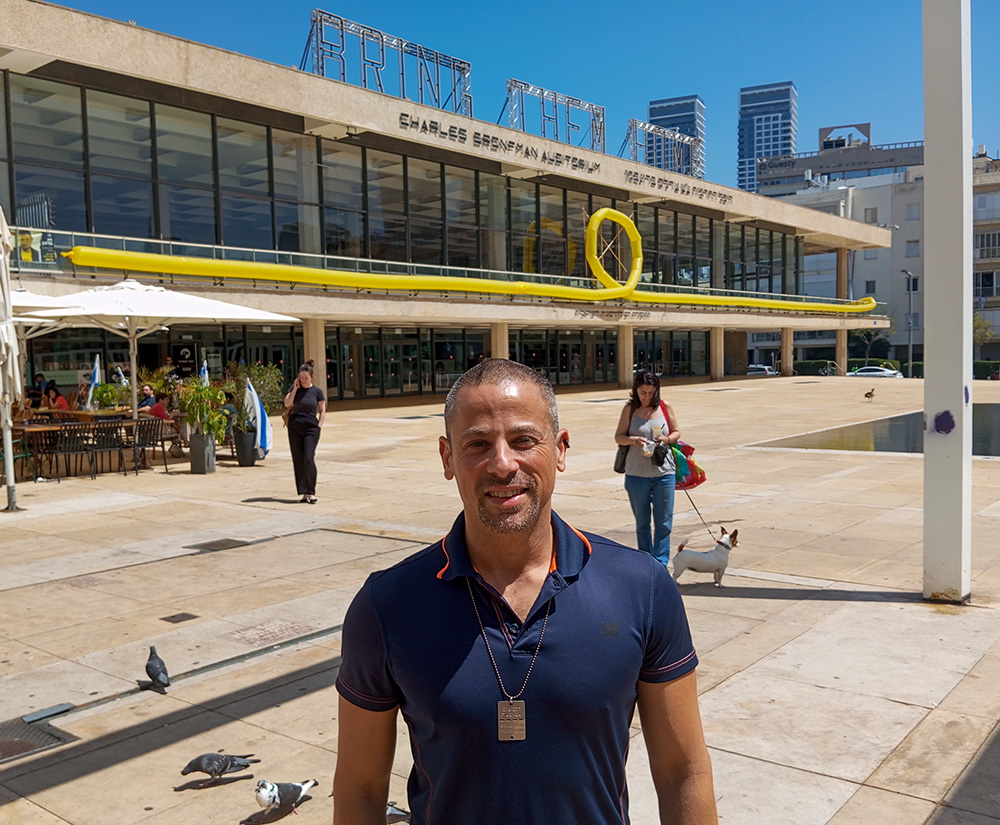
Later he moved to England and lived there for six years, studied at three academies, and from there was involved in troupes all over the world. Since 2013 he has been based in Israel, but still travels internationally for weeks or months at a time, creating works with local dance troupes.
“When I was a student in England, my pieces already dealt with the disintegration of the peace process in Israel. Then there was a period in Israel when my work was a little more abstract. In recent years, I have been dealing with fear and trauma in my choreography, and re-defining them from a place of strength, positivity and choice. To look at the empowering side of the experience, without sweeping the dark side of it under the rug.
"On the morning of October 7, I experienced a total collapse of everything I thought was left of the country. There was some kind of consensus that if something bad happened to you, there would always be someone there within ten minutes. There is no forgiveness for what happened on October 7. For 18 hours I saw [Israeli journalist Danny] Kushmaro's interviews with the people who hid in their houses, and it was a complete shock. Helplessness. Two years ago, during Operation 'Guardian of the Walls' [in 2021], Yaffo was destroyed. It wasn't clear what would happen this time, so on Saturday I didn't leave the house. The next day I went to volunteer folding diapers, and on Monday I had already arrived at the expo, and from there it unfolded.
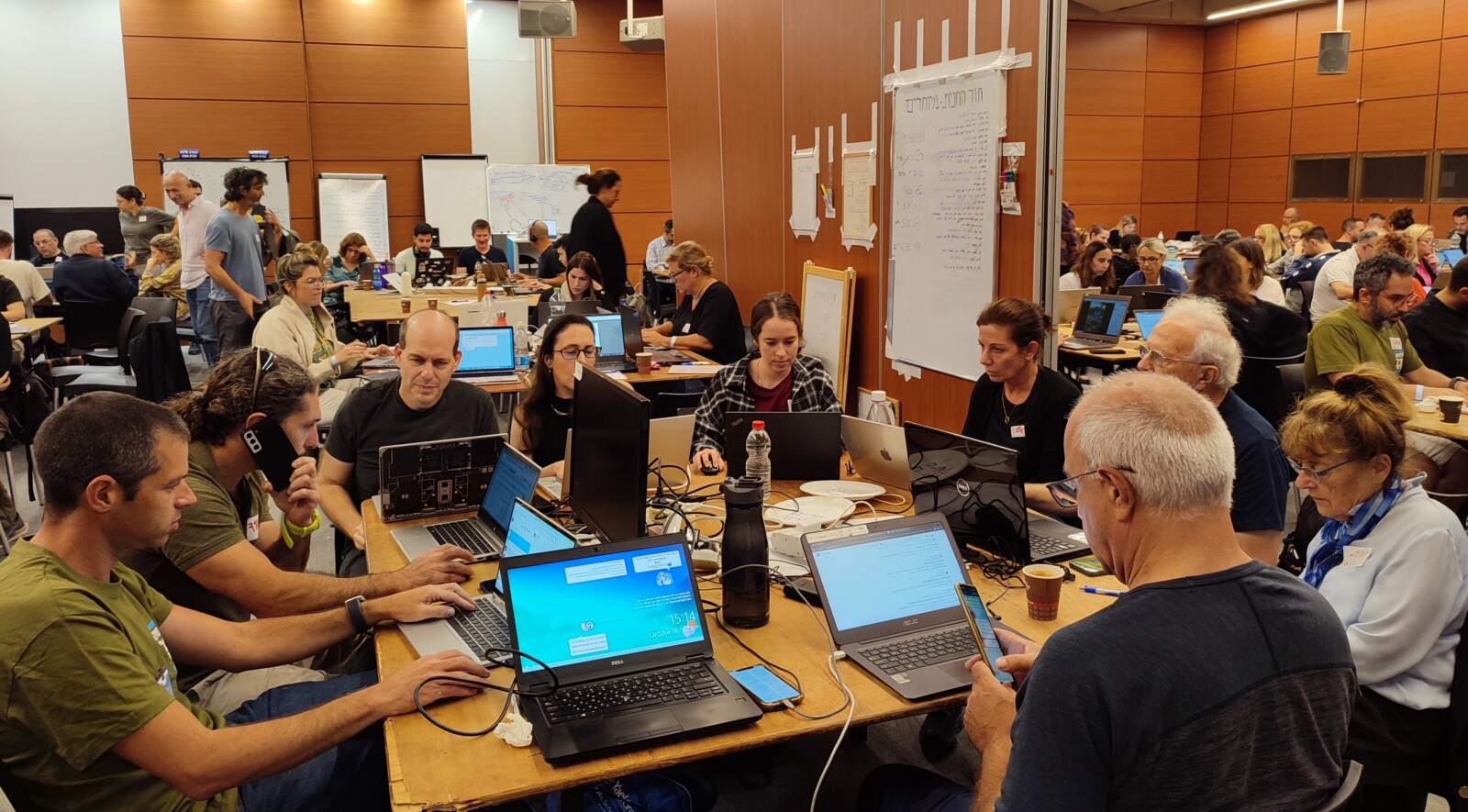
"I joined the team that established the Hostages and Missing Families Forum. Dozens of people arrived every day, until the forum numbered about 500 people. I recruited people from the dance community and leaders of the protest movement, I spread messages everywhere."
Ronen described the work in the organization:
"There were endless lists of people who we knew were at the Nova music festival or in the Gaza Envelope and we didn't know what happened to them. They all started with missing status, and we had to figure out who was alive and notified people; who was alive but in a catatonic state at home and didn't send updates; who is wounded and still hiding in the bushes awaiting rescue; who is kidnapped with eyewitness testimony or video documentation of them; who has not yet been identified; who is still missing and does that mean they were kidnapped; who is in the hospitals. There was a huge array."
Ronen’s role was working in the special cases team, investigating the whereabouts of several dozen people whose cases had something unclear in them. There were reports that someone was alive even after they had been confirmed dead, conflicting reports of kidnappings, and reports of four people with the same name, two of whom were said to have died and two of whom were said to be alive.
The organization chose to work on behalf of all missing persons, even those whose fates were not immediately clear. Ronen cites the example of the Brodetz family, for whom the organization had only unconfirmed reports of their kidnapping. The Hostages and Missing Families Forum fought for them to be listed as hostages, and ultimately the two parents and three children were released in the November prisoner exchange agreement.
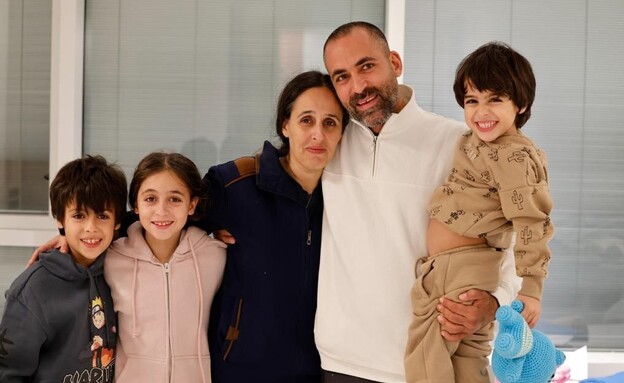
In the first weeks of the war, Ronen was working at the organization from morning until night.
"Families turned to us who no one had spoken to for two weeks. A family of a boy who went to Nova, and no one told them what happened to him. They knew we were in operation, and they came. We could only use pieces of information that they brought to advance the investigation. Sometimes we found out that their relative was murdered, but we weren't authorized to tell them, so we had to hide what we knew. It was heartbreaking."
Alongside his work with the Forum, Ronen demonstrated with the families of the hostages in front of the government offices in Tel Aviv.
"It was most important to me to be there with the people whose relatives were abducted or missing. I realized that physical presence is everything. You don't have to say anything. There is nothing to say. What will you say? No need to shout. You can have a megaphone or a drum and make noise, or you can just be there. It does everything."
On the 11th day of the war, the forum experienced a crisis.
"We were looking for someone who was at Nova and found out that he had died. A psychologist who worked with us said that the knowledge that we were looking for him, and that the families are not alone, even if we are strangers, is everything for them. What sends trauma to a catatonic and irreversible state is not what happened, but the loneliness within what happened. Our presence there is what will allow us to recover and move on in life."
Ronen spoke quietly, and it was evident that he was trying not to break down and cry. But when he recalled the Kapshitter family (who were murdered on their way back home from a camping trip on the beach of Ashkelon), he could hardly express himself:
"They found the bodies of the parents, but they didn't find the children. We were working very hard on this case, and then the boy was found dead. There had been hope that the children would survive, be adopted, experience rehabilitation from the trauma, and who knows what they will grow into? Who knows if in forty years from now these children would lead the country? But the boy was found dead and a little later his sister too. It's the end of a world."
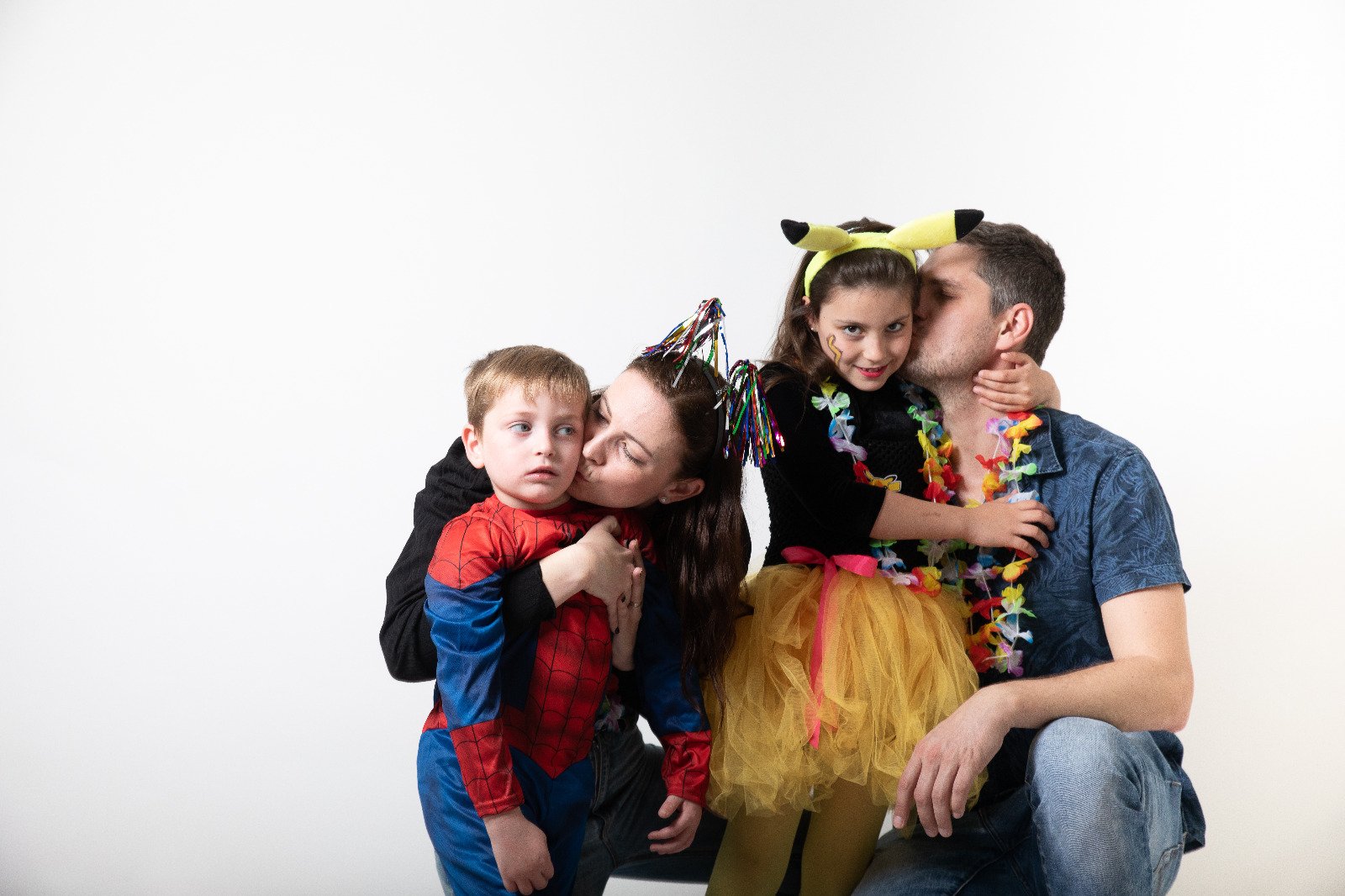
As part of the public day of mourning on the one month anniversary of the war, Ronen directed the main memorial ceremony, held at the Charles Bronfman Auditorium in Tel Aviv, with the participation of the Philharmonic Orchestra, artists and bereaved families.
In December and January, Ronen started working with the dance troupe in Germany.
"The two basic qualities that I wanted to express in the piece were fragility – without strong movements – and a durable mental center. These are, in my opinion, the qualities that characterized every person who was in the forum."
The turning point in the creative process with the dancers was the hostage deal.
"A week or two after we started working, the hostages started coming back," he recounted, choking with tears. "I revealed to the dancers what I had been through. Every group of released hostages included people that we had worked to find. The communication with the Hostages and Missing Families Forum in Israel and with my team was very exciting, and it had to go into the work with the dancers. We didn't know each other deeply, they had to trust me, and they did. It was a special moment. I was exposed to them."
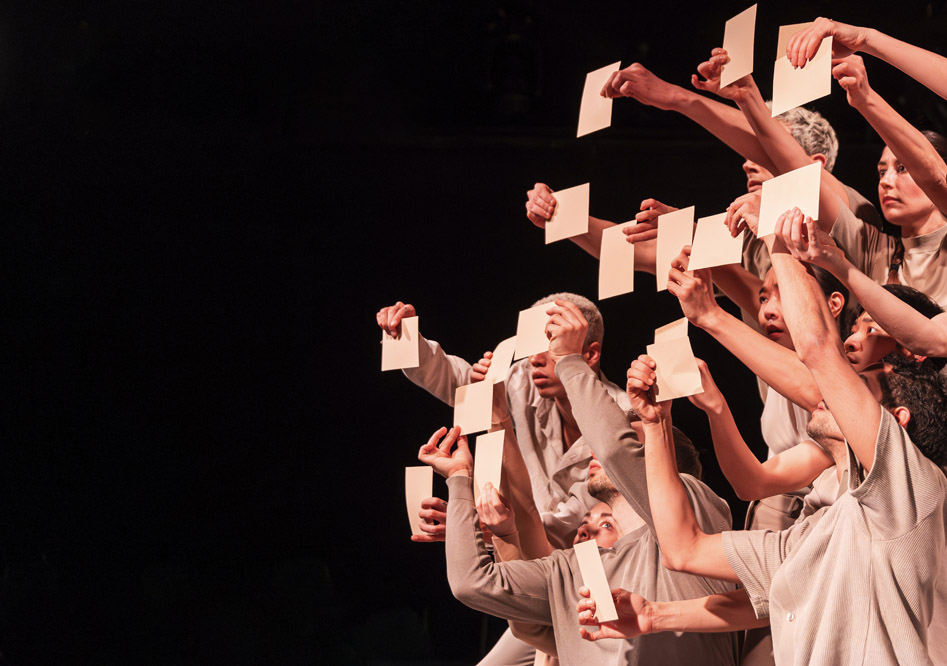
The piece was accompanied by Ronen Kozokaro, an Israeli musician from London:
"He creates electronic music. He started building very long improvisations with the dancers. The result of these improvisations was music that contains rhythms reminiscent of anxiety, persecution, alarms and heartbeats, and beneath them are subtle melodies and harmonies of the soul. All of these together add up to the impossible feeling of what it is to be Israeli.
"I gave the dancers hundreds of notes, and I told them there were four stations: alive, dead, wounded and kidnapped. I let things happen on stage. The dancers were simply brilliant. We did seven such improvisations, I photographed them, sampled them, we reproduced them and put together the puzzle that is the final piece."
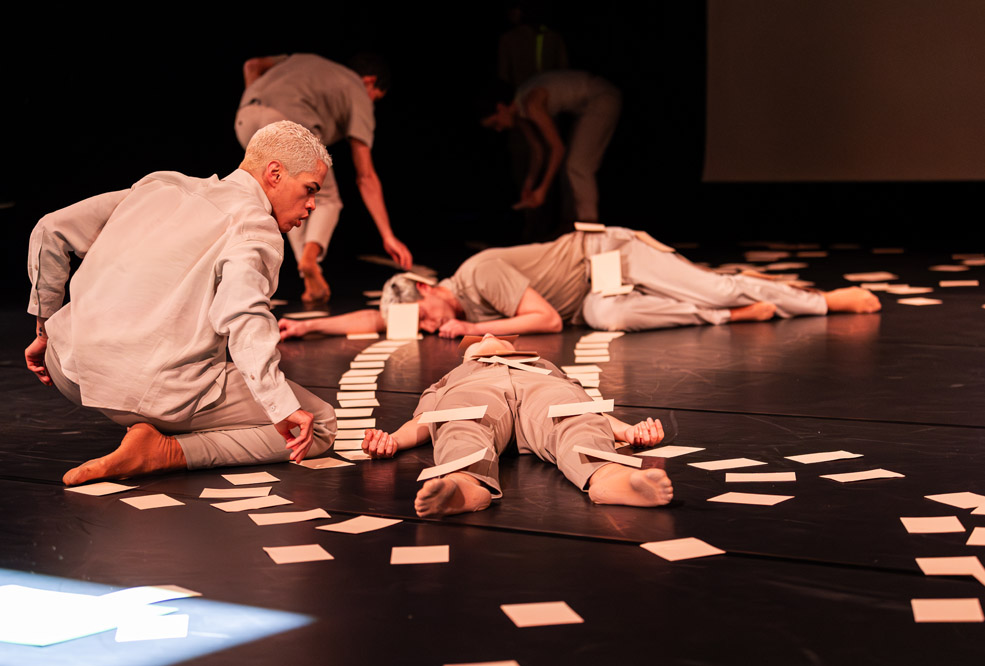
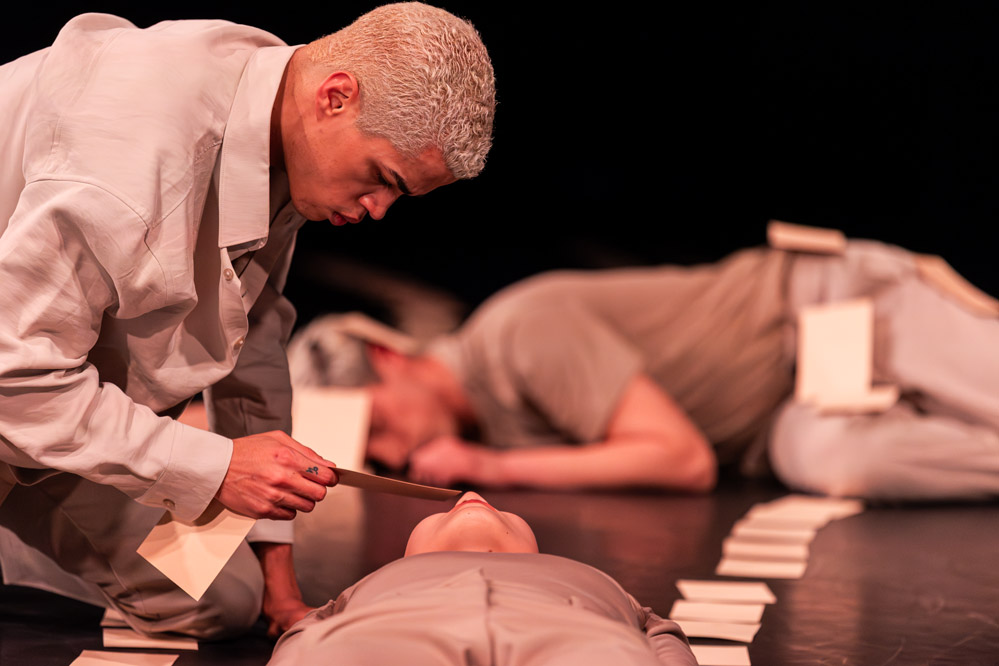
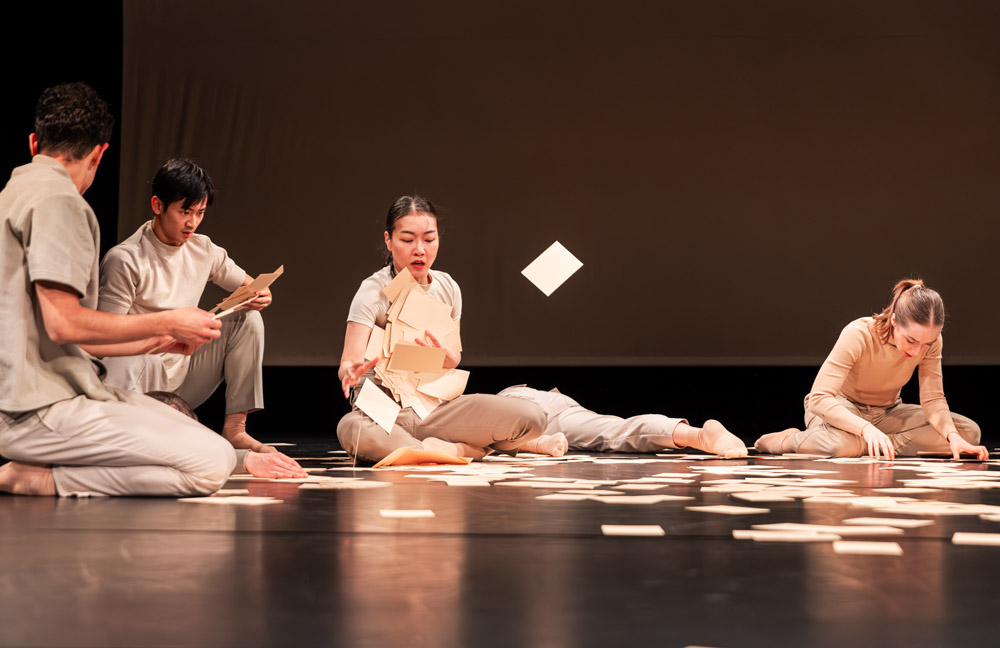
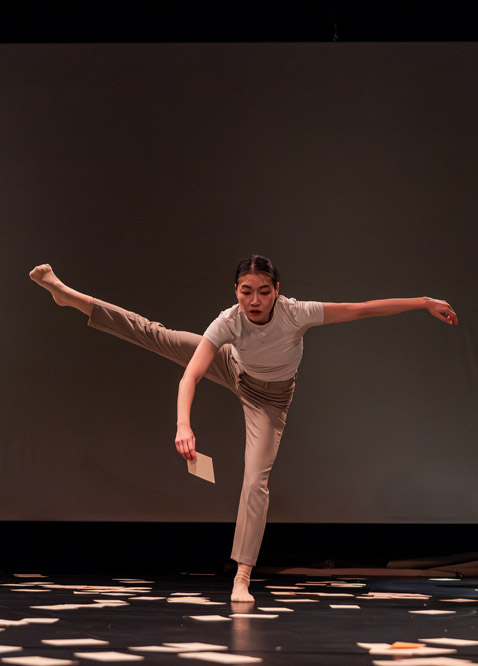
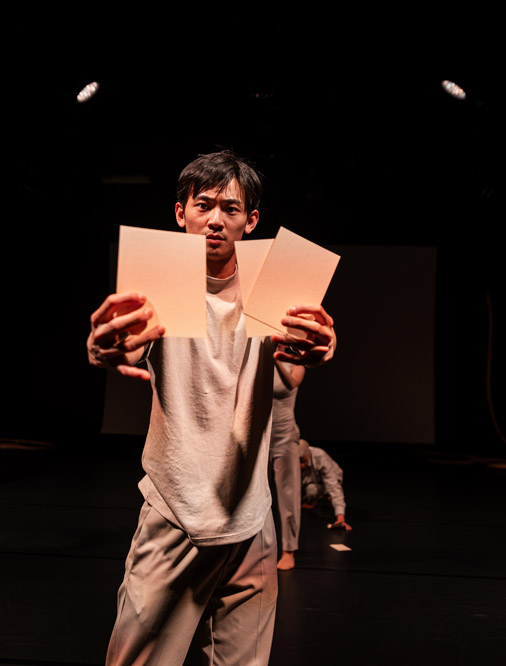
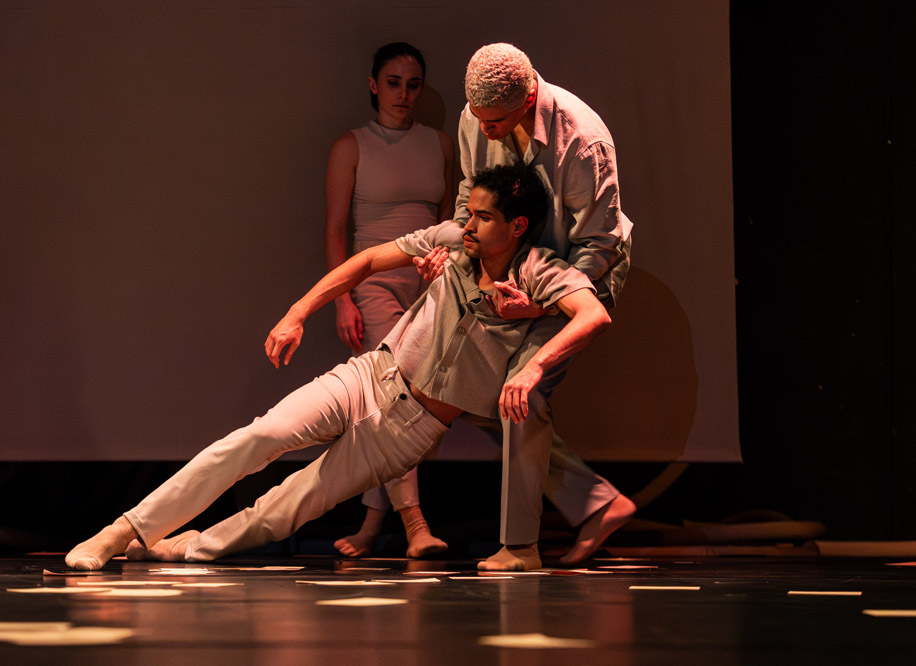
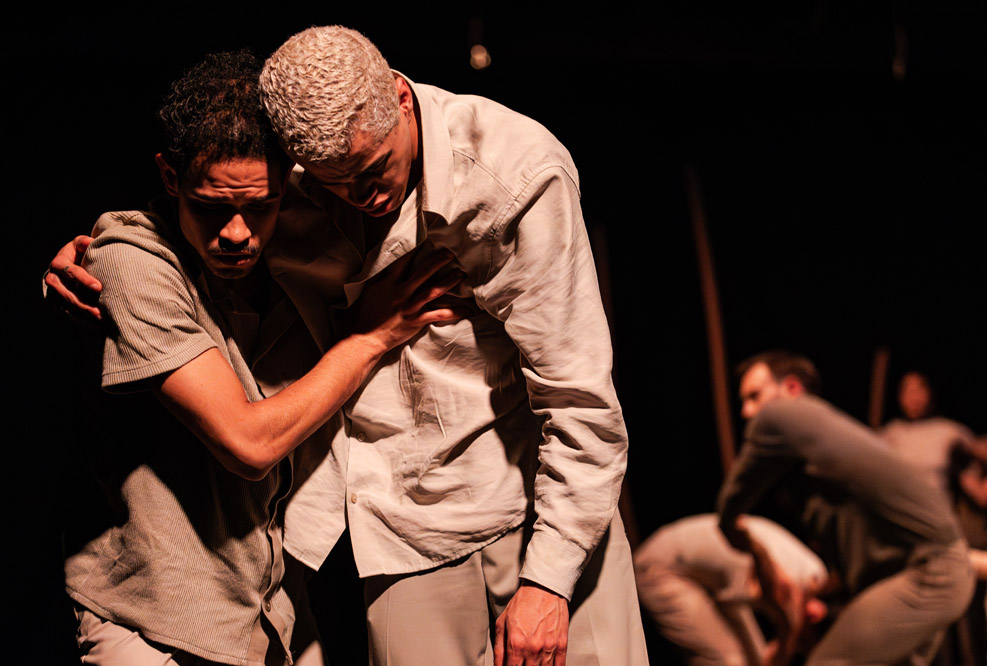
The show opens with the animated segment ‘They are Us,’ which explains what happened at the Nova music festival. Later in the show, excerpts from Israeli broadcast News 12, as well as excerpts of Ronen's conversations with family members and survivors, are integrated into the show.
Ronen commented on the difficulty of creating a work without politics:
"The dancers were afraid of what we were doing. Reports began to reach them about the catastrophic situation in Gaza… The show’s set and costume designer also objected. It annoyed and hurt me personally at that moment, but later I understood the nature of the opposition and was able to respond to it in the piece. That’s why the piece doesn’t talk about the war. It’s about the brotherhood between people you might not know… The piece is finished, and it is out of my hands, and now it is in the hands of the dancers. How much depth will they bring in the moment of truth, and if they are willing to expose themselves to these feelings that I described, because anything less than that will not work."
In terms of audience reaction, the show was a success.
"The reviews were favorable, all the shows were sold out. There was no opposition, so I felt that the goal was achieved. Americans who saw the show said that this was the feeling in New York after September 11. It’s flattering because I don’t want to be told 'Israel, Israel.' I want them to say ‘mutual brotherhood, it reminds me of another event.'"
Ronen wants to bring the show to Israel, but only after the war is over.
"We understand that there is something here that deals with the events in an indirect way. We are in a very sensitive period, and frontal angles don’t work. They only lead to conflicts and arguments. There is something in non-verbal art – dance, animation, videos and music, which manages to reach the soul subconsciously."
Ronen emphasizes that he did not create the work to help Israeli advocacy efforts, but often talks about the sentiment that only Israelis can understand, and that can only be created here.
"When great darkness comes, to get up and go out and act, it's counterintuitive. It's beauty that grows as a counterpoint to horror. In countries like Finland or Switzerland you won't see it. When you're not dealing with the horrors of the world, with massacre, with murder, with kidnappings, you're not required to take out the card of 'there is another world,' there is another, deep truth. I wish for the day when we won't need it."
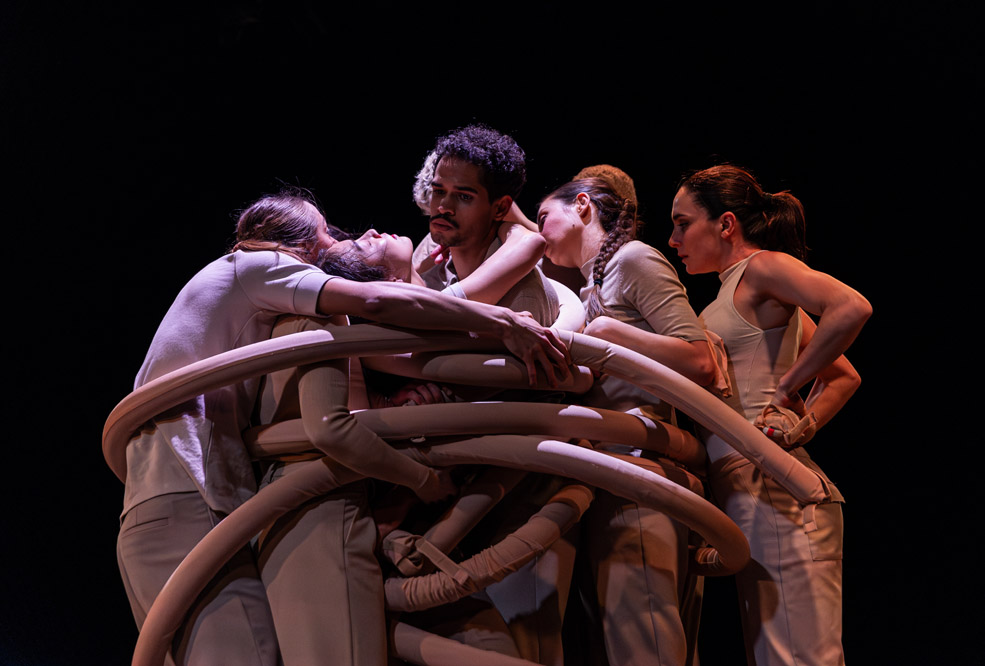
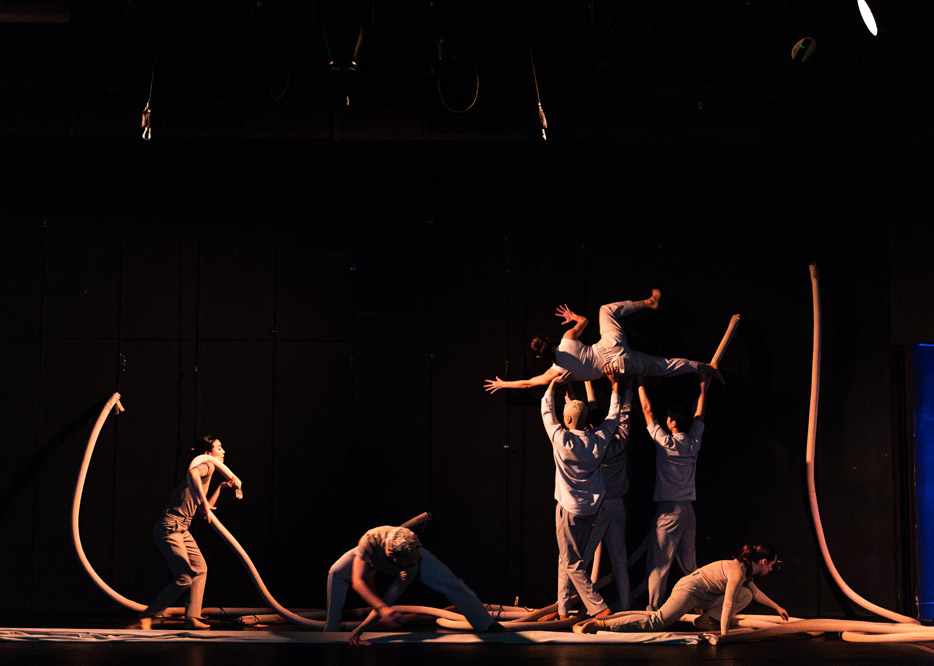
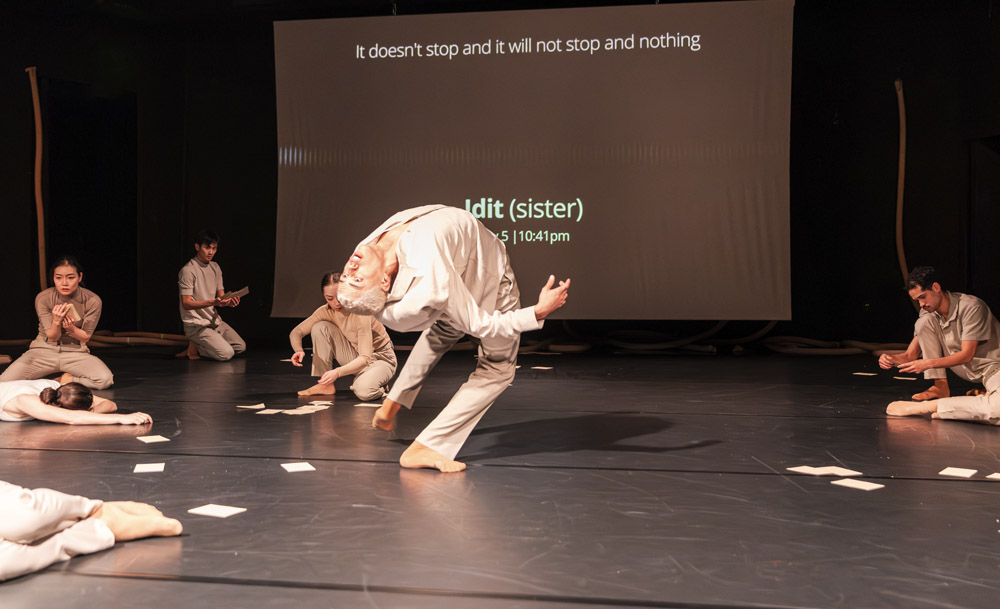
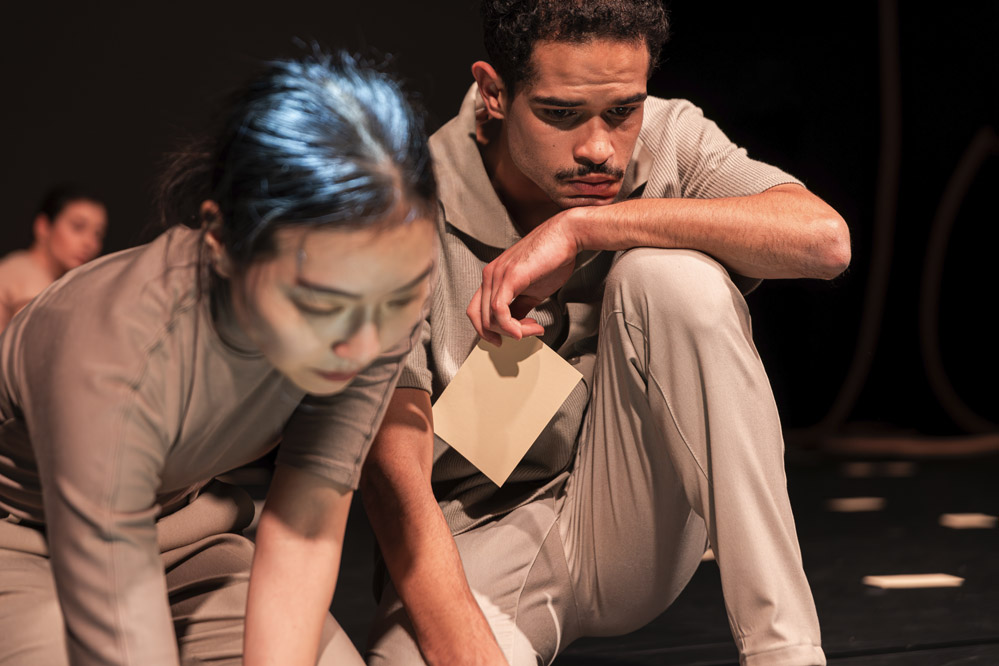
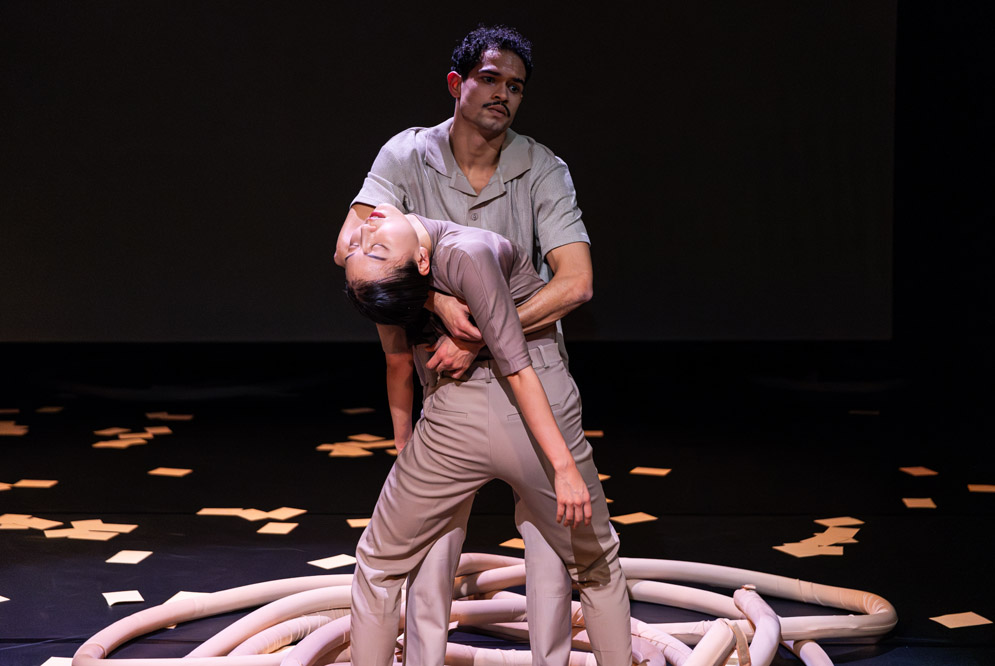
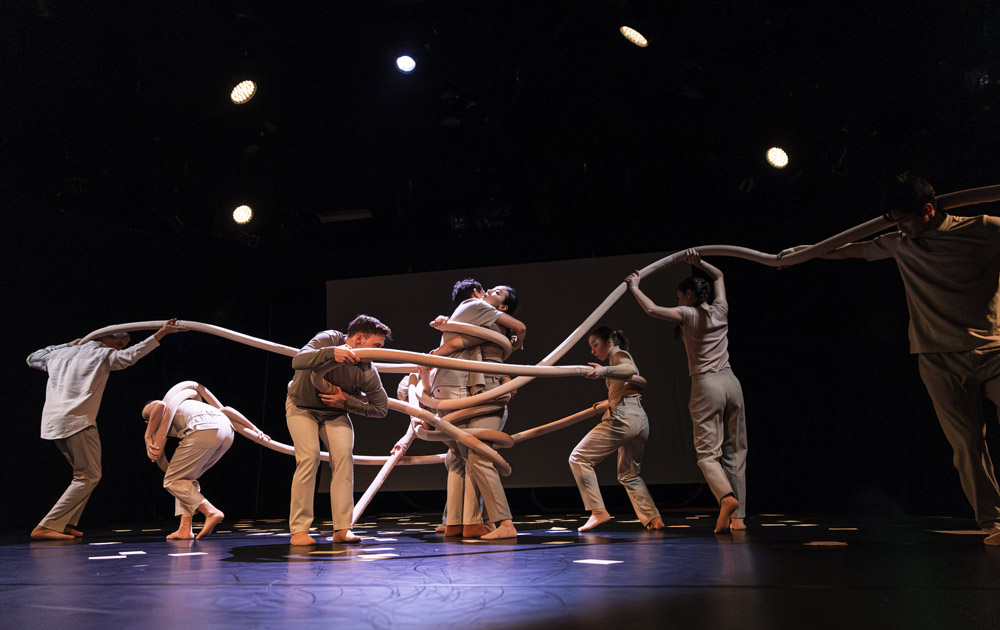
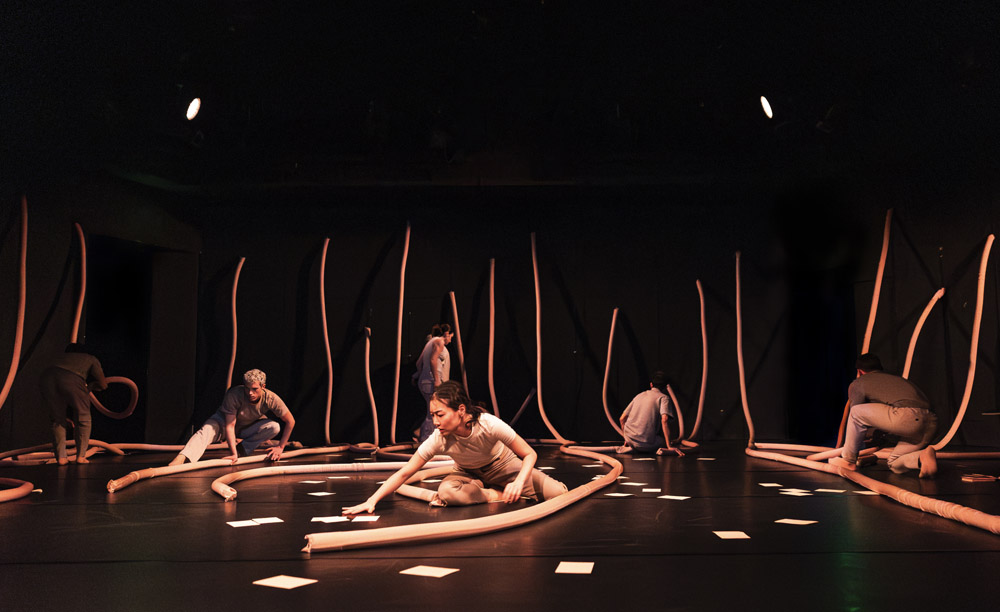
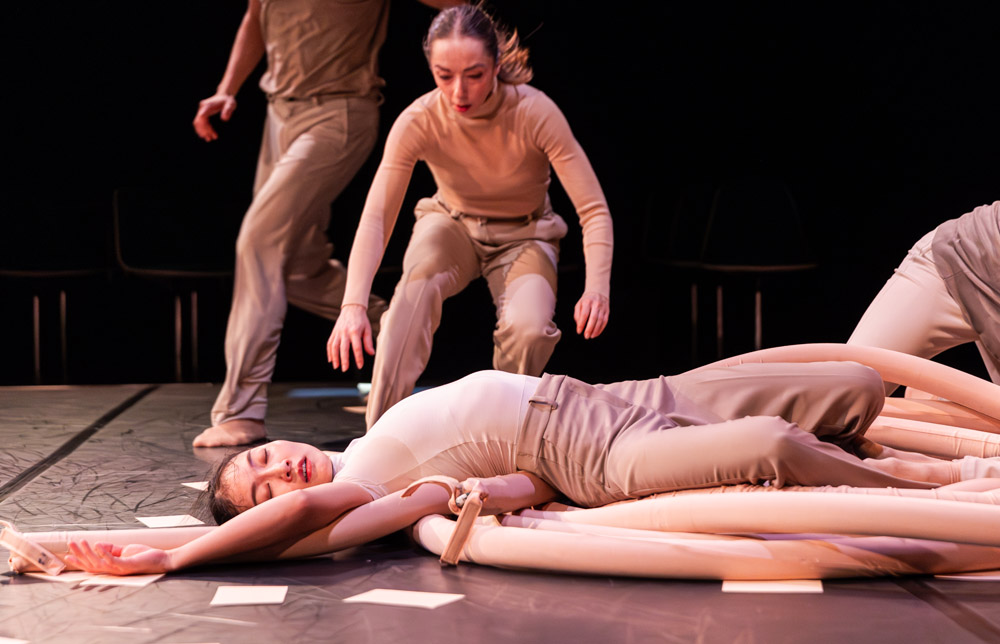
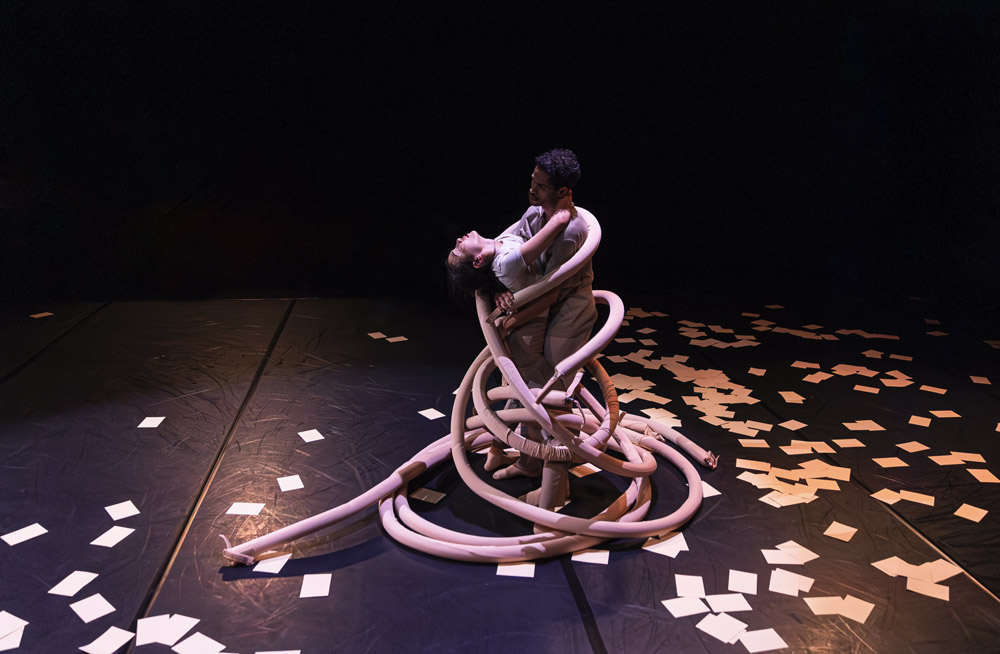
"I want people here and all over the world to be exposed to the human brotherhood which exists here, as a sentiment of the depth of Israeliness. I want to try to redefine our national trauma. This is a huge goal, I am attempting it alone. But I know that for people who have seen the show, including families of hostages, it will bring up the trauma for them again. [But] there is something bigger than their experience of loneliness. This is important to me because we are at a critical point mentally. If we don't deal with the demarcation of this trauma as something empowering and positive, we may spiral for decades. I think it helps me too."
Before the war, Ronen’s sense of power was drawn from the national demonstrations against the judicial reforms.
"I felt that I was not just a small citizen, threatened and helpless, but that I could stand. During the demonstrations, people realized that they were not paralyzed by fear, and that they were capable of doing something – going out into the streets, holding a sign, then holding a musical instrument, shouting, singing, going down to the Ayalon highway, lighting fires and saying 'No' without fear of violence from a policeman, a horse, a run-in or political factors. The protests helped us develop a backbone."
These feelings, and the reality they created, saved the country in his opinion.
"The ability to stand and demonstrate is the same ability to go to a collection point and pack equipment, or to go to the Hostages and Missing Families Forum and look for missing people, and go to the fields and pick, and rescue dogs that were left behind and drive soldiers to the south when there is no public transportation. People mobilized immediately, and it was the most beautiful thing in the world, to see a country built from the bottom up, when everything above does not exist."
This article was translated from Hebrew by Nancye Kochen.






